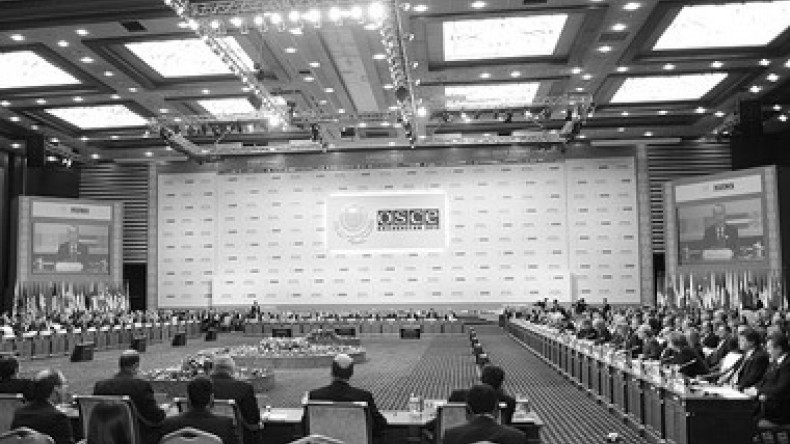
Karabakhi-Azerbaijani conflict gets different coloring: expert’s remarks over OSCE MG statement
The heads of delegations of OSCE MG Co-Chairing countries released a statement a point of which reading that the final settlement of the Nagorno-Karabakh conflict should be based upon the United Nations Charter is , in fact, a new element which should be hailed, political expert Armen Minasyan told Panorama.am making his remarks on the statement delivered by the OSCE MG Co-Chairing countries.
“This innovation contributes to the interests of Nagorno-Karabakh people. The UN charter, which is of superior strength in the international law, signifies rather clearly the right of self-determination of nations,” expert said.
Minasyan referred to the chapter one of the charter which defines the purpose of the organization, stating among other three purposes (which refer to maintain international peace and security, to achieve international co-operation in solving international problems of an economic, social, cultural, or humanitarian character) the following: “To develop friendly relations among nations based on respect for the principle of equal rights and self-determination of peoples, and to take other appropriate measures to strengthen universal peace.”
The expert states the principle of territorial integrity in the UN Charter isn’t of such a high position.
“By the way, This reality is the consequence of the fact that once the United Nations had 52 member states, while now the organization has about 200 members,” Minasyan said.
According to Minasyan, UN Charter point four of article 2 defines all Members shall refrain in their international relations from the threat or use of force against the territorial integrity or political independence of any state, or in any other manner inconsistent with the Purposes of the United Nations.
“Thus, Karabakhi-Azerbaijani conflict gets quite different explanation under this chapter and if it’s needed to make the final settlement correspondent to UN Charter, it means assessments should be given to the origin of the conflict and activities of the parties in intensified rounds and to their sequences, particularly, to the fact of carrying out the self-determination right of NK people and to the aggression provoked by Azerbaijan. I think, we could make parallels with Hague Court decision towards Kosovo made this year,” expert said.
Newsfeed
Videos






























